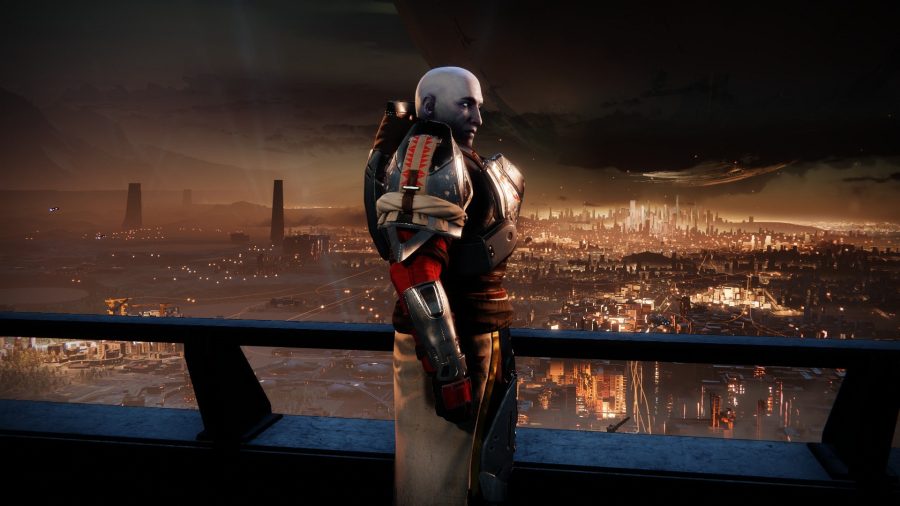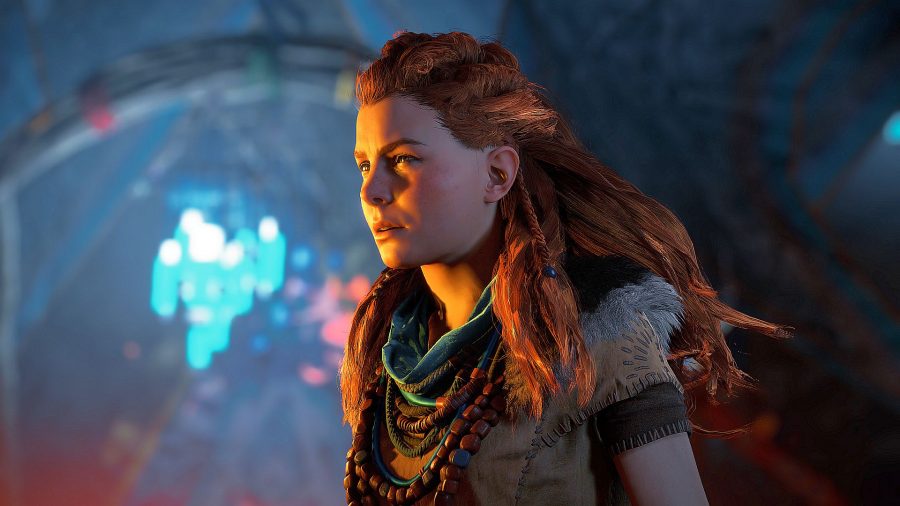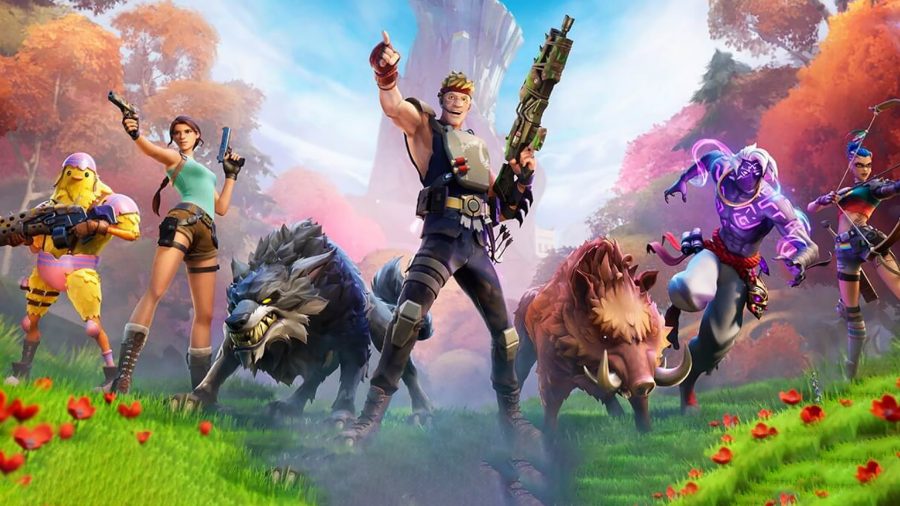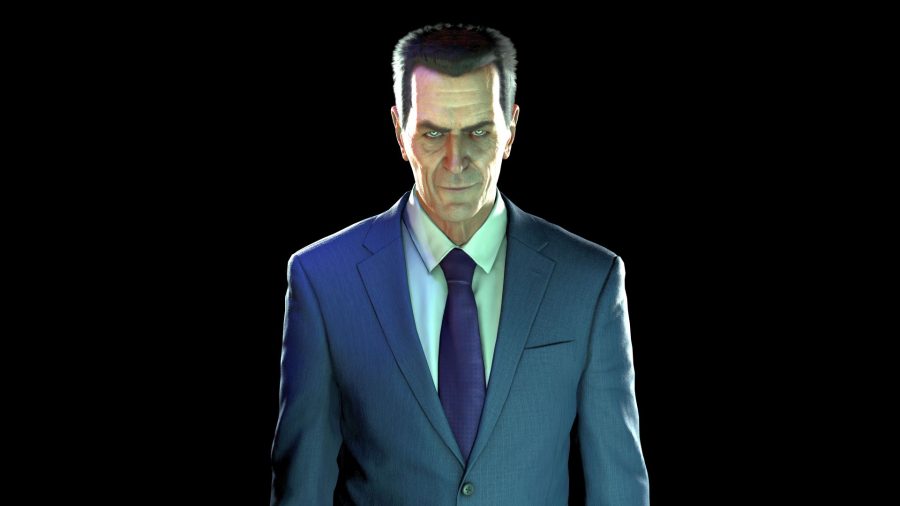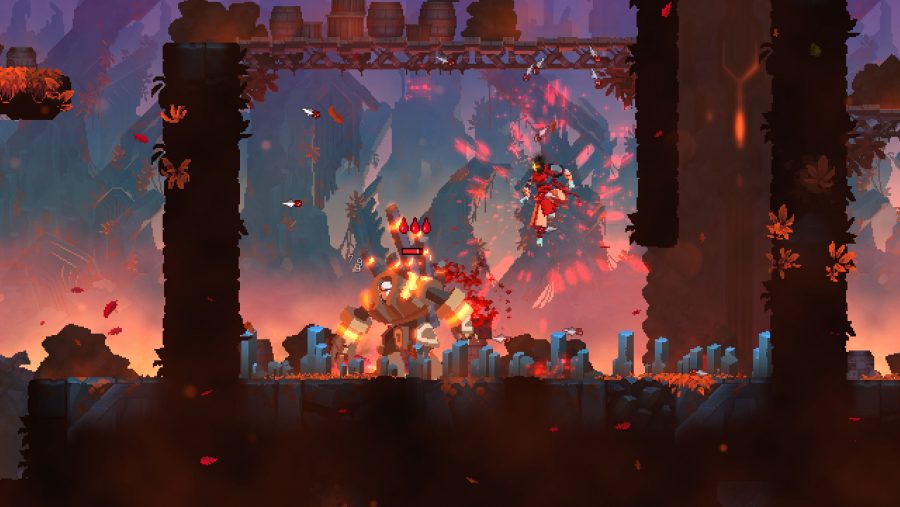Steam will shut down. Whether that ends up being due to changing business realities or the eventual heat death of the universe remains to be seen, but nothing lasts forever, and that includes the biggest PC gaming platform out there. But what if it happens tomorrow? Say Gabe Newell takes the entire Valve office on a permanent rocket trip to the Martian colony he’s probably funding, and there’s nobody left to push the ‘make Steam work’ button.
If Valve’s gone, that first of all means that Half-Life 3 will truly never happen – but already we’ve spent years positing that Valve doesn’t know what goes between ‘two’ and ‘four’, so that change wouldn’t mean much. As wonderful as Half-Life has been, Steam is ultimately a much bigger contributor to the current gaming landscape.
What would publishers do with their PC games if Steam went away? What platforms would players use if Valve were no longer in the picture? And – perhaps a less abstract concern with the recent threat of the PlayStation 3 online store shutdown – what happens to all those digital games we’ve spent way too much Steam sale money collecting?
What happens to publishers?
The big-money concern is what will happen to the top, ongoing titles housed exclusively on Steam. Big games like Apex Legends, Rainbow Six Siege, and Path of Exile all have standalone or publisher-specific launchers to fall back on, but will players follow all those games back to a more dedicated platform? Part of what’s made Steam so enticing as a platform is that it’s a singular application that keeps all your games up to date, and that sort of convenience is a big boost toward the gentle social pressure that helps these games thrive.
Make no mistake: hardcore Destiny 2 players will follow Destiny 2 to the hypothetical Bungie Launcher (or any other solution), just as they followed it from Battle.net to Steam. But what about those games that our rhetorical Destiny fan only plays occasionally? Will they keep Origin not just installed, but constantly running, to pull in those updates for Apex Legends?
If I have to wait for a multi-gig update to download every time a friend wants me to hop into Apex, I’m that much more likely to just stop playing it altogether – and from a publisher’s perspective, that means I’m also less likely to buy a battle pass or drag even more friends into the game. In theory, big publishers might be happy to once again have a captive audience on platforms like Origin and Ubisoft Connect, where they can keep 100% of the revenue on every transaction, but the promise of access to Steam’s giant audience has been enough for the likes of Microsoft, EA, and Bethesda to give up exclusivity for their own games (seriously, remember the Bethesda Launcher?)
That concern becomes even bigger for those third parties who don’t have their own launcher. Steam’s player base has incentivised publishers to invest resources in PC ports for games like Persona 4 and Ni No Kuni – an idea that would’ve been unthinkable a few years ago. It’s not much of a stretch to imagine that if Steam goes away without a strong competitor to replace it, those sorts of PC ports might simply never happen again.
But then, there’s a pretty big elephant in the room – an Epic-sized one, if you will. Epic has been trying, to varying degrees of success, to position its store as the alternative to Steam, and the company has had the funds to at least convince publishers that it’s worthwhile. Studios keep 88% of a game’s sales, much better than the 70% offered by Steam (with some sales quota caveats) and most other digital distribution platforms. Many devs also have a built-in relationship with Epic thanks to Unreal Engine, and they get a deal on engine licensing fees via the Epic Store, too.
Read more: Check out the best new PC games in 2021
As the timed exclusivity of everything from Borderlands 3 to the Kingdom Hearts ports can attest, Epic has pockets deep enough to woo publishers. But its efforts to draw players have been much less successful.
What happens to players?
I think it’s safe to say that PC gamers will still want to play PC games following the death of Steam, and a lot of the Epic ‘boycotts’ would fall apart if Epic were to become the biggest game in town. That said, if Steam fell apart tomorrow, the Epic Store as it currently exists would not be a suitable replacement. Steam’s user reviews, community features, marketplace, and library organisation options are all imperfect, but Epic doesn’t even have equivalent features (I flatly refuse to believe anyone really cares about the shopping cart, though.)
Would Epic create those features if it were the biggest store out there? Yeah, probably, but even without the windfall our hypothetical Steam shutdown would cause, you’d think that Epic would have the resources to get those features in more quickly. There have been tentative steps into Steam Workshop-style mod installs for Epic-exclusive games like Total War Saga: Troy, but that’s just one major feature compared to everything Valve’s grafted onto Steam after nearly two decades.
Even if Epic became the de facto market leader with Steam shut down (let’s be real, Itch.io is built for tiny games and major publishers would never sign on for GOG’s DRM-free approach), it’s likely that big studios would try a renewed push on their proprietary launchers. Steam helped revitalise PC gaming in large part by simply making it more convenient, and a big part of that convenience would simply disappear if the digital storefront scene became even more fragmented.
Your friends lists would be all over the place, your purchases would be linked to a multitude of stores, and you’d need to keep all those apps up to date with a zillion extra icons running in the task tray. We still have all those problems right now, but they’re likely to get a whole lot worse – and if you were around for the days of PC gaming when everything was digital, but Steam had not yet come to dominate the market, you’ll know just how infuriating that can be.
What happens to the games?
But let’s say all that stuff works out. Epic (or some other company) provides a perfect Steam alternative, with all the features Valve currently offers, gives a healthy deal to developers, and hey, maybe we get cross-PC-platform friends lists to make all that multiplayer gaming viable again. What about all the games we already own on Steam?
The only concrete answer Valve has provided players on the matter is a stock support email: “In the unlikely event of the discontinuation of the Steam network,” Valve reps have said, “measures are in place to ensure that all users will continue to have access to their Steam games.”
Read more: Check out the best upcoming PC games in 2021
That statement is the better part of a decade old, and it wasn’t much comfort even when it was first issued – a sort of a broad ‘eh, it’ll be fine’ handwave of the entire problem. Somebody has to keep paying for servers to provide downloads for the tens of thousands of games on Steam, and publishers have to be confident that those servers aren’t getting hacked and their games pirated. It costs money to keep these things in operation, and if Valve’s out of the picture, who’s footing the bill?
That’s a big problem from a consumer perspective, and it’s similarly huge from a game preservation perspective. With the Steam store gone, thousands of games will suddenly fall out of official availability. Many will end up on other platforms – and, hopefully, publishers would make it easy to transfer your Steam purchases elsewhere – but many more will suddenly be out of circulation. Legally, anyway.
Let’s not beat around the bush here. Pretty much every game you might actually care about on Steam will be available online in perpetuity thanks to software pirates. In fact, they’re probably already out there. For as much as piracy does represent a negative force when it comes to the profitability of current games, especially those from small studios, pirates have historically provided a level of game preservation that big companies are simply unwilling to put resources into.
But even then, the vast resources of the internet are ultimately limited, and even the scope of piracy can’t hope to match the tens of thousands of games on Steam. Sure, you might not be looking to fire up Megacraft Hentai Edition 20 years down the road, but even the trashiest Steam games are historical artefacts – an illustration of the glut of titles that have been choking the indie scene to varying degrees over the past few years.
PC gaming would certainly survive a Steam shutdown, and there’s already at least one meaningful competitor out there willing (and eager) to fill a Steam-shaped hole. But the consequences of such a sudden disappearance would still be drastic, as players scatter to follow their favourite games to new services, and maybe start to feel a bit less confident picking up giant collections of digital games. And then there’s the matter of the tens of thousands of smaller, indie games which only otherwise exist on their developers’ hard drives, and which might disappear entirely overnight.
‘What if?’ is PCGamesN’s new regular feature series. Check back every Saturday for more hypotheticals, from thoughtful speculation about actually-plausible industry developments, to dream crossovers, to nonsense like Half-Life 3 happening.

